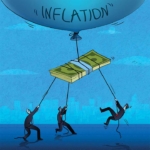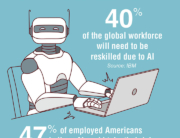We include developments from the Staffing Industry Daily News and the Staffing Stream to help you focus on emerging movements that could shape your business for the better.
Benefits of an ERG
An employee resource group is a voluntary group of employees formed around a common identity or interest. Common themes include employees of color, LGBTQIA+ employees, veterans, parents and young professionals.
Generally, ERGs are a vehicle for employees to share their experiences, perhaps in monthly meetings, via a Slack channel or through planned activities outside of the office — whatever the employees themselves want.
Two essential traits of ERGs are that they are voluntary and employee-led. Although leadership can (and should) encourage their employees to get involved, ERG membership should remain voluntary. Making sure that all employees feel welcome to join also encourages allyship.
A representative from leadership should remain involved in ERGs and keep leadership informed of new ideas or initiatives that are brought up, but employees should feel safe to drive the conversation and speak freely.
Ultimately, ERGs are a tool for engagement. Employees should feel comfortable sharing their opinions — as they converse, they will feel more included at work.
But ERGs may be able to point to specific areas of improvement within the company, such as a need for wellness programs or gender-neutral bathrooms. ERGs may also identify additional training to combat unconscious bias or to teach employees how to use more inclusive language. Over time, giving employees the space to share freely bolsters innovation.
In addition, ERGs can be an avenue for identifying and developing leadership. Because ERGs are employee-led, they present an opportunity for employees to step into leadership roles and to exhibit skills that may not be a part of their regular roles.
Source: “How Employee Resource Groups Can Create a United Workforce,” the Staffing Stream, by Derrick Coleman, search and staffing practice leader for GHJ.
Inflation is impacting the career decisions of 80% of the workforce due to the current economic environment, according to a report by FlexJobs.
The report also found that inflation is currently a huge factor in career decisions for one-third of the respondents, while it is either a factor or a small factor for 46%; 17% cited that inflation is not driving their career decisions at present, and the remaining 3% were unsure.








